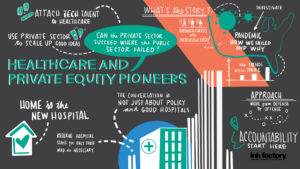In this session, the panelists discussed the latest trends and unique dealmaking considerations impacting the urology industry.
Session panelists included:
- Kevin Palamara, Managing Director, Provident Healthcare Partners
- Mitchell Hollander, MD, Chief Executive Officer, Michigan Institute of Urology
- Jitesh Patel, MD, President & Chief Executive Officer
- Moderator: Joseph Parise | Partner, McDermott Will & Emery
Top takeaways included:
- Value-based care opportunities exist in the urology space, including around sub-capitation models and episodic reimbursement; however, access to and collaboration with payors is a critical component to ensure those opportunities are successful. Platforms and independent practices can work with payors and managed care organizations to ensure alignment on appropriate reimbursement rates to create better outcomes, quality and access—all at lower cost. To date, these models have not been broadly implemented, but operators have identified managed care as an area for potential growth.
- Competition with hospitals and employed urology models are significant challenges in the industry and with respect to developing ancillaries. Generating income repair for physicians and ensuring alignment among the stakeholders are key components to countering competition and developing successful urology platforms.
- It is expected that over the next 10 years there will be a significant shortage of urologists, as the number of retiring urologists continues to exceed the number of new urologists entering the market. Industry participants need to prepare for this impending shortage of urologists by continuing to develop unique staffing models, creating programs to attract and retain talent, and leveraging advanced practice practitioners (e.g., nurse practitioners [...]
Continue Reading
read more

 Subscribe
Subscribe





